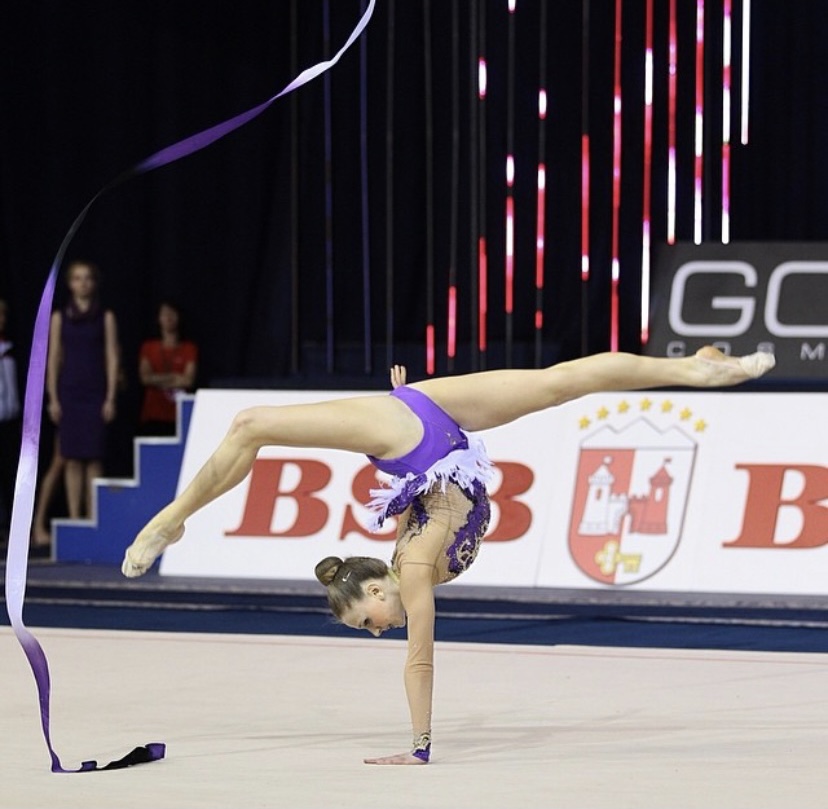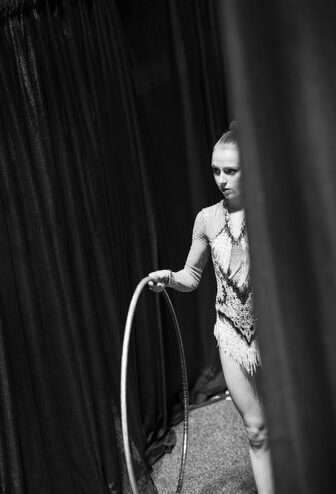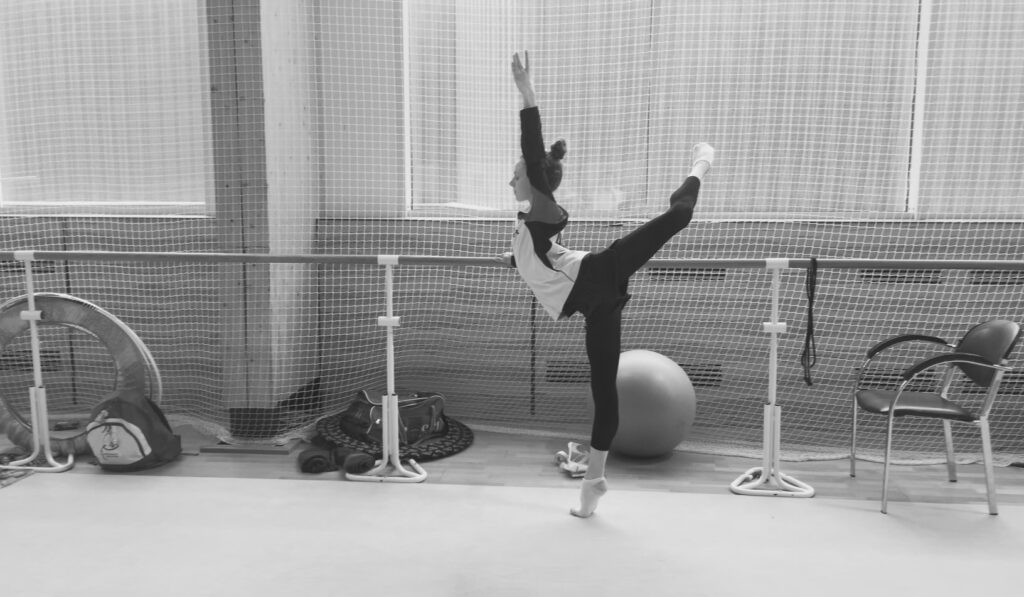In the one other personal essay I’ve written about rhythmic gymnastics, I remembered that when I arrived at college after retiring as an athlete, I liked the anonymity that I thought would come from leaving my sport behind. “I’d been ‘the rhythmic gymnast’ since elementary school,” I wrote, “and I felt ready for a change.
I’d also assumed that Stanford would be where I’d find my non-gymnastics-related calling. Surely I’d realize I was meant to become a doctor or a lawyer or one of those other things good students became. I’d take a class that would light a spark in me the way rhythmic gymnastics had. Wouldn’t I?
I tried many subjects. Chemistry intimidated me. Statistics bored me. I did love foreign languages, history and writing, so I eventually declared an international relations major and a Russian language minor. After that, I enjoyed my classes, but I still didn’t know what I wanted to do with my life.
One morning in the summer between my sophomore and junior years, I woke up to a Facebook message from a local rhythmic gymnast’s parent: Their team was looking for another coach. Would I be interested in the job?
I didn’t have to stop to think. I said I could start the next day.
A year and a half later, it came time for me to decide what to do after finishing undergrad. I’d been coaching part-time, and I thought of Bravo Rhythmic Gymnastics and of all the kids I worked with. When I chose a year-long journalism master’s program at Stanford, one of my deciding factors was that staying in the same place would allow me to keep coaching at the same gym.
So many decisions—what to major in, what internships to apply for, what to do after graduation—had felt paralyzingly hard, but the decision to choose gymnastics remained easy.
“Sorry, I can’t, I’m coaching,” I’d sometimes say when I turned down Friday night dinners or Sunday day trips, just like when I used to say, “Sorry, I can’t, I have practice.” But I didn’t really mind.
Rhythmic gymnastics is a little bit of everything I love. It’s creative, but there are rules. It’s competitive but expressive. Artistic and athletic. It’s complex.
“You know, in many countries, someone like me who competed on the rhythmic gymnastics National Team would become a coach almost automatically,” I told a friend once. “It’s kind of the set path in sports. Wouldn’t that be nice? To avoid all the decisions?”
I felt bad when I said things like that—and even when I simply thought them. I knew what a gift it was to have options. I was at Stanford University, and I could pursue whatever path I wanted!
But I wanted rhythmic gymnastics.
In August, I’ll officially take on a full-time head coach role at Bravo, and I intend to throw myself into it. I feel useful as a coach. It’s not as though my working within rhythmic gymnastics will solve climate change or world hunger, of course, but I can be useful to the people I work with. A limited number of people understand rhythmic gymnastics well—the rules, the training methods, what it’s like to do this sport at the highest level. During my own competitive athletic career, I learned from some of the world’s best coaches and athletes, and I also learned about some aspects of the sport I’d like to change.
As a coach, my number one goal is to help kids believe in their own physical and mental abilities. To me, this means working hard and intelligently in order to make visible progress, but it also means celebrating successes and viewing mistakes as learning opportunities. Even a long rhythmic gymnastics career usually ends in one’s twenties, so I strongly believe this sport should set gymnasts up for a happy, successful adult life.
Which perhaps brings me back to my own post-college life. Why, several people have asked me, would I not focus all of my energy on pursuing a career in journalism (which I studied) or perhaps go law school (which I’ve considered)? Why not try something other than gymnastics?
Here’s why: First, I truly love rhythmic gymnastics, and I’m a firm believer that we’re more likely to do well at pursuits we care about.
Second, I see interesting puzzles within gymnastics that keep me engaged. How can I design better training plans? How can I understand the rules better and choreograph routines more intelligently? How can I work to improve on issues within the sport? Rhythmic requires more thought than an outside observer might realize.
Third, life, God willing, is long. There’s time for multiple careers. I would love to apply what I learned in college throughout my life, including in ways that extend beyond coaching and into writing and other types of work. But right now, I love coaching, and I’m excited to call it my job.





0 Comments